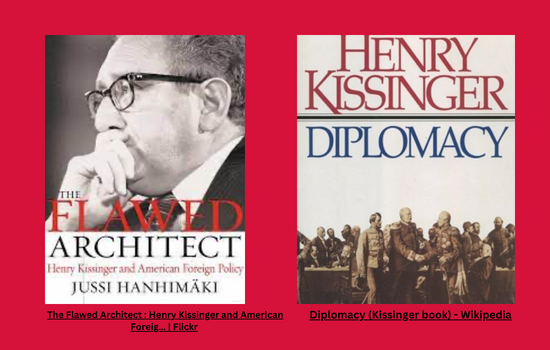Robert D. Kaplan
Unherd, Nov. 30, 2023
“Kissinger continues to be hated because of Vietnam. But as strange as it may seem, Kissinger and Nixon, in withdrawing from Vietnam in the bloody manner that they did, demonstrated real character: they believed that they were serving the national interest and proving their toughness to China and the Soviet Union, even as they knew they would be vilified in the media, in all the books written by liberal historians, and in the opinion polls for acting thus.”
I was privileged to know Henry Kissinger for over two decades, having dinner at his weekend home in Kent, Connecticut, several times a year since 2000, except for the period of the pandemic, when we spoke on the phone or via Zoom. What brought us together was an Atlantic essay I wrote in June, 1999 about his first book, A World Restored, dealing with the post-Napoleonic peace treaties. We met for the first time several months after that piece was published.
Once we became friends I did not write again about Kissinger, except for one long tribute to his career, meant as an obituary, which The Atlantic decided to publish upon his 90th birthday in May, 2013. Between that piece, and the superior work on Kissinger’s life and thoughts published by Niall Ferguson, Barry Gewen, and Martin Indyk, I have little to add, except for personal reminiscences of dinner discussions, with Kissinger calling on his several guests to offer their opinions of the great issues of the day — and then replying to them.
At Kissinger’s dinner parties, organised by his brilliant and formidable wife Nancy, whose own presence filled the room, the headlines were often ignored. Discussions ranged from the historic dilemmas of China, Germany, Russia, and the United States to the challenges of the universities to the attributes of great leaders. You got a preview of his later books by being in his presence.
… [To read the full article, click here]


